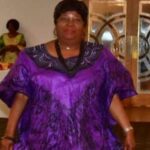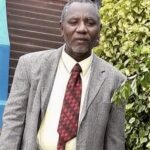
The Danish ministries of foreign affairs and higher education and science are launching a new programme worth DKK430 million (US$66 million) aimed at promoting partnerships between Danish and African universities that will see more postgraduate African students receiving funding to come to Denmark for their studies, according to an announcement on 13 June.
“Every year, thousands of international students cross Denmark’s borders in the search for new knowledge, new experiences and new opportunities.
“But in spite of the huge proportion of the world’s young population living in Africa, only a limited number of African students are coming to Denmark as a part of their education. This, the government will now change,” a press release containing the announcement said.
The ministries’ new Knowledge and Innovation Programme is a central component of the government’s strategy of increased engagement with African countries known as “Africa’s century”. The ambition is to strengthen long-term and equal strategic university partnerships.
The seven-year programme aims to support approximately 230 students annually who wish to pursue part or all of their master’s degree in Denmark, as well as those who wish to pursue studies of shorter durations or participate in summer schools.
The programme will fund grants that cover both tuition and living costs in Denmark. There is also support for those Erasmus+ initiatives that specifically contribute to closer partnerships between Danish universities and universities in African countries.
The programme will be managed on behalf of the Ministry of Foreign Affairs by the Danida Fellowship Centre (DFC), which has more than 30 years of experience in designing and offering training courses for grant holders participating in Danish development programmes. The DFC also manages all funding for Danish development research.
Geopolitical importance
Minister of Higher Education and Science Christina Egelund said: “I am glad to be inviting more African students to come to Danish universities and also hope that more Danish students will seek higher education in African countries. Africa has an enormous potential that we can contribute to realising through education.
“In 2050 one third of the young people in the world will be living in Africa, and the geopolitical importance of the continent is increasing fast. That is why we are now launching this programme.”
Minister for Foreign Affairs Lars Løkke Rasmussen said: “We have a clear interest in African countries looking to us in Europe when they are setting the course for their future.
“With the new programme, we are not just investing in education but in relationships that build an important bridge between Denmark and Africa. It is about cultivating mutual understanding and demonstrating that we can offer an attractive alternative to the increasing influence of other countries.”
Shared global challenges
The Knowledge and Innovation Programme was launched by the Danish Government in 2025 to facilitate joint networks and skills development for African and Danish students addressing shared global challenges.
Under the programme, African and Danish university partnerships can apply for partnership project funding or for seed funding to develop partnership projects. However, the programme does not fund research activities.
Grants for projects will be awarded based on annual calls for applications in 2025, 2026 and 2027. Implementation of the first partnership projects is expected to start on 1 January 2026.
A selection committee for the Knowledge and Innovation Programme will advise the DFC regarding support to university partnerships under the programme.
The committee members will be recruited based on competence and experience with university partnerships and exchanges, specialist knowledge about international relations in the higher education landscape in Denmark and African countries, insight into requirements of university and innovation environments in African countries, and in-depth knowledge and experience with development cooperation, according to government documents.
The committee will assess applications for partnerships, scholarship activities and seed funding for partnerships.
A ‘common good’
Rune Boelsmand Bak, vice-chair of academic matters at the Danish National Union of Students (DSF), told University World News the union was positive about the proposed programme.
“Our universities gain so much from being international and intercultural melting pots, and the fact that a whole continent practically has been missing is unacceptable.
“DSF is especially hopeful of the programme for two reasons: for one thing, and this is purely a practical matter, the government will provide the necessary funding to make the programme a feasible one.
“Many international students in Denmark experience critical hardship with stipends, housing and job availability, and we hope that this programme will begin to anticipate and counteract this reality.
“Much more important, however, is the focus on actual interchange between the continents. Too often, programmes … end up posing a danger to the receiving end through the process known as ‘brain drain’.
“Basically, one area – in this case Denmark – ends up attracting too many educated people from another region – Africa – which then loses skilled labour and academics,” he noted.
Boelsman Bak said student representatives were happy to see equal cooperation between universities and countries written into the programme.
“This should not become a neo-colonial project of extracting intellectual resources in disguise. We see the free movement of academia and labour within the European Union as a strength,” he noted.
Boelsman Bak said expansion in this area constituted a “common good” and said there were several geographic areas in Africa that the European Union could benefit from working closer with.
“One example is the Economic Community of West African States (ECOWAS), where trade, education, democratic governance and interdependence keep the region relatively stable.
“A closer – and equal – academic relationship between Denmark and the EU and ECOWAS will surely be a common good, both for students and for their home countries,” Boelsman Bak said.
Source: University World News













